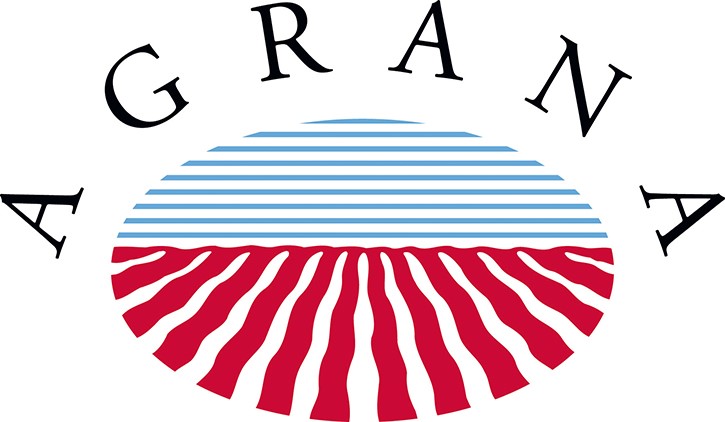Promotional Features
Natural betaine and its role in overall well-being
Ana Gavrău, Global Technical Sales and Innovation Manager
AGRANA Sales & Marketing GmbH
During the Covid-19 pandemic, one of the major focuses was on overall health and well-being. According to Mintel, 61% of consumers globally looked to improve their overall health over the last year.
One special food supplement which is not well-known for its effect on overall well-being is natural betaine.
What is betaine? Is not a vitamin, and it is not an amino acid, but chemically is a vitamin like substance and the methyl derivate of the amino acid glycine, having three methyl groups, known also as trimethylglycine, or as glycine betaine.
Betaine was first discovered by the German chemist Carl Scheibler, who founded the first laboratory for sugar chemistry and technologies. Carl Scheibler isolated betaine in 1866 for the first time in the sugar beet molasses, hence the name of betaine from Beta Vulgaris.
Today we know that betaine is present also in other plants such as quinoa, wheat bran, broccoli, spinach, in aquatic invertebrates and in microorganisms. Plants and bacteria produce and accumulate betaine to cope with salt and temperature stress.
Why choose a food supplement like betaine?
Because betaine is a multifunctional nutrient, naturally sourced, supporting important metabolic functions via many biochemical pathways.
With more than 30 years of research behind it, natural betaine is today a special food and feed ingredient. But what makes betaine so special?
The answer is, its native structure, having three biochemically active methyl groups and being positively and negatively charged. This structure and its high solubility in water, makes betaine a methyl group donor and one of the most effective organic osmolytes.
Talking about the role of betaine as a methyl group donor in the methylation, we need to know first what is the methylation? The methylation is the transfer of a single methyl group in the methylation cycle. We also need to know that the methylation is vital for maintenance, and it is vital for our daily performance. It is also important to know that both humans and animals have a constant requirement on methyl groups and the requirements increase with the stress level.
Especially in the last year 52% of the consumers are interested in products that reduce feelings of stress. The higher the stress, the higher the need on methyl group donors. Methylation is essential for key metabolic processes such as DNA-methylation, RNA-synthesis, protein synthesis, hormonal signaling, neurotransmission, cell growth, fetal development, and membrane integrity. In functional terms, methylation affects embryonic differentiation, fetal development and growth, metabolism and the immune system.
By daily intake, betaine functions as a methyl group donor mainly in the liver mitochondria, in the homocysteine - methionine cycle, lowering the homocysteine, acting in the prevention of hyperhomocysteinemia. It is essential to know that high homocysteine levels in the blood (hyperhomocysteinemia) are associated with hearth, kidney and liver diseases. Homocysteine is a natural non-proteinogenic molecule in the human body, occurs as an intermediate product in the methylation cycle, and is a damaging amino acid when available at high levels. Scientific evidence shows that increased homocysteine levels in the blood are a risk factor for heart disease and the supplementation of betaine can lower the homocysteine level, converting it into methionine- a very important essential amino acid.
It is also relevant to know that as we age the homocysteine level will be increased and the addition of betaine supports “healthy” homocysteine levels, maintaining within the normal range.
As a methyl group donor, natural betaine is involved directly and indirectly in many other biochemical pathways increasing the production of important methylated metabolites like carnitine or creatine, which are involved in the energy metabolism and muscle growth.
Betaine as an “inside beauty care”
When betaine donates one methyl group to homocysteine, the remaining two methyl groups will form di-methyl-glycine, which is further converted into glycine. Consequently, betaine is also a source of glycine, a non-essential but relevant amino acid, especially in collagen protein. Collagen, elastin and keratin are glycine-rich proteins and mucin contains high levels of serine. It means that by daily intake betaine is helping the body in its own collagen, elastin and keratin production, as an “inside beauty care”.
Glycine is also one of the amino acids present in bile salts, important for fat digestion, and in protein synthesis in the liver. Another important function of glycine is to produce uric acid, in order to eliminate the excess of nitrogen from the body which means that is supporting the liver in detoxification, as the liver is our detoxification center. Moreover, glycine and serine are involved in the synthesis of glutathione which is one of the most important antioxidants. Thus, a very diverse amino acid with major functions in various metabolic pathways in both human and animal organisms, and betaine can function also as an important source of glycine.
Betaine protects against dehydration
The other important physiological function of betaine is in osmoregulation.
Osmoregulation is the ability of the cell to maintain its structure and functionality by regulating the movement of water in and out of the cell and higher betaine concentration in the cell can make the cells resilient against stressors. Betaine as an osmo-protectant in the osmoregulation - why is this possible?
This is possible because of its high solubility in water and because of its native structure: being positively and negatively charged, having the zwitterionic structure. This structure is giving betaine the osmo-protective property, acting as a compatible organic osmolyte, also called a neutral or compatible solute.
Research shows that betaine is the most effective osmo-protectant among the organic osmolytes like proline, glycine, glutamine, sarcosine, and taurine.
Betaine restores and maintains cellular integrity and functionality and prevents dehydration. As a ‘compatible’ osmolyte, betaine can replace on demand the ‘disrupting’ inorganic ions, whose concentration levels may affect protein structure and enzymes’ functions. It can minimize the water loss from cells, maintaining the cells’ volume, structure, and activity thereby conferring on them higher resilience against stressors. Easily said, betaine prevents dehydration and contributes to rapid rehydration and regeneration, very important for overall well-being especially in hot summer days, international travels and particularly in sports nutrition.
In conclusion, considering the multifunctionality of natural betaine, acting as a methyl group donor and as an organic osmolyte, the daily supplementation may lead to the following benefits - with functional role in terms of health, well-being and daily performance:
✔ Improving physical, mental or athletic performance
✔ Hydrating the body while improving power and endurance
✔ Shortening the recovery time post- exercise, or after injuries and diseases
✔ Stimulating muscle growth and fat loss
✔ Boosting the antioxidant defence mechanisms
✔ Facilitating the bioavailability of nutrients and nutrients absorption
✔ Immuno-boosting and alleviating symptoms of stress through supporting the gut integrity and gut health
DuraBeet - a food supplement for overall well-being and new product development
Natural betaine is obtained from partially desugarized (sugar) beet molasses via a chromatographic separation and crystallization process.
DuraBeet is produced in Austria, next to the beet sugar factory in Tulln under the highest quality requirements of Agrana. As the consumers today are more sensitive, well-educated, and well-connected, they require more transparency and sustainable methods in the food production processes. Transparency, traceability, and sustainability are key concerns of not only consumers, but everyone in the supply chain.
For Agrana, sustainability means acting in a resource-sensitive and socially responsible manner in all areas of business. As a commitment to our customers, we strive for full traceability of our products back to their natural sources.
As the core business of Agrana is in food production, we have a long track record of serving our clients and their needs with high quality products.
For several decades, we have been processing sugar and starch products including infant milk production with the highest quality standards. So, we leveraged our high-quality standards and history of food production to implement the new crystallization plant for betaine, finished last summer. We utilise 100% natural raw materials, we process and rely on low-emission technologies targeting “Zero waste”, in order to protect the environment and to derive a 100% plant-based and GMO-free natural product.
References are available upon request:

